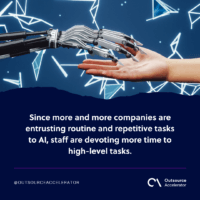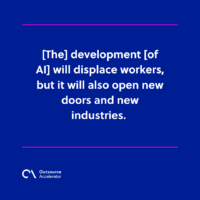Bill Gates’ forecast
Bill Gates’ prediction that the standard five-day workweek would be reduced to two days because of artificial intelligence (AI) is an inaccurate prediction of what the future workplace will look like.
People have blasted the Microsoft founder for being out of touch with modern workplace realities and have accused him of trying to boost AI stocks.
While he is right that AI has reduced human workloads in the manufacturing and logistics industries, work is drastically different in office-based work. There’s always something to tweak or improve upon, even when a project has been completed.
Teams, senior management, and the C-Suite will continue to provide feedback and points of improvement to refine a specific project or process. Apart from internal assessments, changing client demands and volatile economic conditions will directly impact how companies do things.
Loaded workweeks
The rise of AI will not alter corporate work cycles. Since more and more companies are entrusting routine and repetitive tasks to AI, staff are devoting more time to high-level tasks. Routine assignments are what people hate the most about their day jobs. AI will now take care of these tasks, which will make workweeks more worthwhile, challenging, and fulfilling.
Gone are the days when staff spend hours on end on administrative tasks such as data entry. For the next few years, the modern worker must be an expert in analyzing and translating this data into useful insights.
New doors, new industries
We’re still in the early stages of AI. Studies have shown that around 40% of companies use AI in their business. This figure will exponentially increase as AI engines get cheaper and more sophisticated. This development will displace workers, but it will also open new doors and new industries.
The Industrial Revolution created a wide array of jobs, such as textile workers, machine operators, and factory managers — occupations that did not exist before. The Internet Boom generated a fresh demand for software developers, network engineers, IT support specialists, and digital marketers.
The AI Ascent is difficult to predict and, therefore, more exciting. Accountants, journalists, and project managers are now required to have a working knowledge of AI. Initially, experts thought demand for AI programmers would soar. But a number of engines can now write code, and in other cases, better than humans. All of a sudden, professionals with liberal arts backgrounds could be more in demand since their skill sets perfectly complement AI.
Wherever AI takes us, one thing will be clear: there will be more opportunities and more work to be done. It is in our nature to keep progressing and adding value to our everyday labor.
The question for your business
How can AI add value to your business?
Read more thought leadership articles here:
- Rippling vs Deel Espionage: The Dark Side of Silicon Valley
- Exposing the Unscrupulous Workers Juggling Multiple Jobs




 Independent
Independent





















